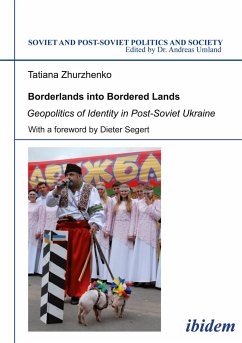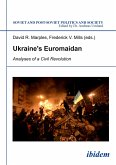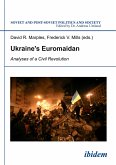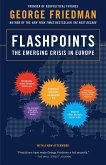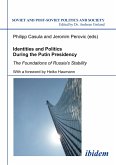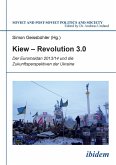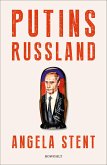Since 1991, post-Soviet political elites in Ukraine, Russia and Belarus have been engaged in nation- as well as state-building. They have tried to strengthen territorial sovereignty and national security, re-shape collective identities and re-narrate national histories. Former Soviet republics have become new neighbours, partners and competitors searching for geopolitical identity in the "new Eastern Europe," i.e. the countries left outside the enlarged EU. Old paradigms such as "Eurasia" or "East Slavic civilisation" have been re-invented and politically instrumentalized in the international relations and domestic politics of these countries. At the same time, these old concepts and myths have been contested and challenged by pro-Western elites. The main subject of this book is the construction of post-Soviet borders and their political, social and cultural implications. It focuses on the exemplary case of the Ukrainian-Russian border, approaching it as a social construct and adiscursive phenomenon. The book shows how the symbolic meanings of and narratives on this border contribute to national identity formation and shape the images of the neighbouring countries as "the Other" thereby shedding new light on the role of border disputes between Ukraine and Russia in bilateral relations, in EU neighbourhood politics and in domestic political conflicts. The study also addresses "border making" on the regional level, focusing on the cross-border cooperation between Kharkiv and Belgorod and on the dilemmas of a Euroregion "in absence of Europe." Finally, it reflects the everyday experiences of the residents of near-border villages and shows how national and local identities are performed at, and transformed by, the new border.
"[...] many academic readers will find the fieldwork portion of Zhurzhenko's volume, as well as some of her theoretical analysis, informative and thought-provoking. [...] Her detailed focus on the area and its problems is truly pioneering and is to be commended." (Anthropology of East Europe Review 30 (1), Spring 2012) "[The] analytical structure and trajectory of Zhurzhenko's work - travelling from broad historical time and geopolitical space to the here and now - practically means one could read it from the last chapter to the first as easily as the other, conventional, way around. I enjoyed immensely reading in the closing chapters the Ukrainian and Russian villagers' own testimonies, their preoccupations, details of their changing lives. I could well have taken all this in first before proceeding to the so called bigger questions of state-to-state relations and the changing geopolitical architecture of Eastern Europe. Either way, it is a carefully constructed narrative aboutthe advent of a border in people's minds and across their land." (Debatte, vol. 19, issue 1-2, 2011)

